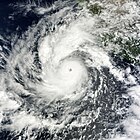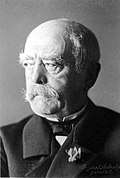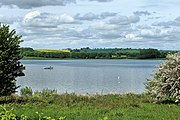Wikipedia:Today's featured list/January 2019
|
Featured list tools: |
January 4

Commando raids were made by the Western Allies during much of the Second World War against the Atlantic Wall. The raids were conducted by the armed forces of Britain, the Commonwealth and a small number of men from the occupied territories serving with No. 10 (Inter-Allied) Commando during the Second World War. All the operations took place between the Arctic Circle in Norway and the French border with Spain, along what was known as the Atlantic Wall. The raiding forces were mostly provided by the British Commandos, but the two largest raids, Operation Gauntlet and Operation Jubilee, drew heavily on Canadian troops. The size of the raiding force depended on the objective. The 57 raids were all between 1940 and 1944 and were mostly against targets in France, which had 36 raids. The raids ended in mid-1944 on the orders of Major-General Robert Laycock, the chief of Combined Operations Headquarters. (Full list...)
January 7

From 1949 to 2018, 82 recorded Pacific hurricanes peaked at Category 3 strength on the Saffir–Simpson hurricane wind scale within the Northeast Pacific tropical cyclone basin, which is denoted as the part of the Pacific Ocean north of the equator and east of the International Date Line. This does not include storms that also attained Category 4 or 5 status on the scale. Category 3 is the third-highest classification, and categorizes tropical cyclones with one-minute maximum sustained winds between 96 knots (110 mph; 178 km/h; 49 m/s) and 112 knots (129 mph; 207 km/h; 58 m/s). Tropical cyclones that attain such winds and move over land while maintaining those winds are capable of causing severe damage to human lives and infrastructure. The development of Category 3 hurricanes in the Northeast Pacific basin is influenced by many factors. During hurricane season, from May to November, sea surface temperatures are high enough to support tropical cyclogenesis; the bulk of recorded Category 3 hurricanes developed during June to October. (Full list...)
January 11
Nineteen different songs topped the Hot Country Singles & Tracks chart in 2003, based on weekly airplay data from country music radio stations compiled by Nielsen Broadcast Data Systems. Hot Country Songs is a chart that ranks the top-performing country music songs in the United States, published by Billboard magazine under the name Hot Country Singles & Tracks that year. The highest total number of weeks spent at number one by a song in 2003 was the eight achieved by "It's Five O'Clock Somewhere", a collaboration between Alan Jackson (pictured) and Jimmy Buffett. The duet spent an initial seven weeks at the top, was replaced for a week, and then returned for a final week at number one. The song's first spell at number one tied for the longest unbroken run at the top with "Have You Forgotten?" by Darryl Worley. Three singers achieved their first number one hits in 2003: Gary Allan, Joe Nichols, and Dierks Bentley. (Full list...)
January 14
The Chancellor of Germany is the political leader of Germany and the head of the federal government. The chancellor is responsible for selecting all other members of the government and chairing cabinet meetings. The office was created in the North German Confederation in 1867, when Otto von Bismarck (pictured) became the first Chancellor. With the unification of Germany and establishment of the German Empire in 1871, the Confederation evolved into a German nation-state and the office became known as the Chancellor of Germany. Originally, the Chancellor was only responsible to the Emperor. This changed with the constitutional reform in 1918, when the Parliament was given the right to dismiss the Chancellor. Under the 1919 Weimar Constitution the Chancellors were appointed by the directly elected President, but were responsible to Parliament. The constitution was set aside during the 1933–1945 Nazi dictatorship. The 1949 Basic Law made the Chancellor the most important office in West Germany, while diminishing the role of the President. (Full list...)
January 18
The Trans-Tasman Trophy is awarded to the winner of the Australia–New Zealand Test match series in cricket. The trophy is awarded to the team that wins a Test series, or one-off Test match, between the two nations. If the series is a draw, the holder retains the trophy. It was first competed for in the 1985–86 season, although six Test series between the nations were contested before the trophy's instigation. As of February 2016[update], Australia hold the trophy following their 2–0 victory in the 2015–16 series in New Zealand. Australia also lead in overall wins, winning 10 of the 17 series, while New Zealand (nicknamed the Black Caps) have won 3, the remaining 4 ending in draws. Australia's Allan Border is the most successful batsman in the history of the trophy, scoring 1,356 runs in 25 innings at an average of 61.63. New Zealand's Ross Taylor holds the record for the highest score in the trophy's history, with 290 in the second innings of the second Test of the 2015–16 series in Australia. (Full list...)
January 21
There are 19 Sites of Special Scientific Interest (SSSIs) in Rutland, a ceremonial county in the East Midlands of England. SSSIs are designated by Natural England, a non-departmental public body which is responsible for protecting England's natural environment. Designation as an SSSI gives legal protection to the most important wildlife and geological sites. Sixteen of the nineteen SSSIs in Rutland are designated for their biological importance, one for its geological importance and two under both criteria. The largest site is Rutland Water (pictured) at 1,555 hectares (3,840 acres), a Ramsar internationally important wetland site and a Special Protection Area under the European Union Directive on the Conservation of Wild Birds. The smallest is Tolethorpe Road Verges at 1.0 hectare (2.5 acres), which has several regionally uncommon plants on Jurassic limestone. (Full list...)
January 25
The 2016 Indian Hindi-language biographical thriller film Neerja won 37 awards from 57 nominations. Neerja was directed by Ram Madhvani and produced by Atul Kasbekar. The film stars Sonam Kapoor (pictured) as the eponymous protagonist, and features Shabana Azmi, Yogendra Tiku and Shekhar Ravjiani in supporting roles. Its direction and performances of the cast members have received the most attention from award groups. The film won two awards at the 64th ceremony of India's National Film Awards—Best Feature Film in Hindi and Special Jury Award for Kapoor. At the 62nd Filmfare Awards, Neerja won five awards, including Best Film (Critics) and Best Actress (Critics); the film was also nominated for Best Director and Best Film. At the 2016 Screen Awards, it received a nomination for Best Actress, and won four awards, including Best Director. (Full list...)
January 28
More than 100 cardinal electors attended the papal conclave of 2013, which was convened to elect a new pope, the head of the Catholic Church, following the resignation of Pope Benedict XVI on 28 February 2013. According to the apostolic constitution Universi Dominici gregis, which governed the vacancy of the Holy See, only cardinals who had not passed their 80th birthday on the day on which the Holy See fell vacant (i.e. cardinals who were born on or after 28 February 1933) were eligible to participate in the papal conclave. Of the 207 members of the College of Cardinals at the time of the vacancy of the Holy See, there were 117 cardinal electors who were eligible to participate in the subsequent conclave. Two cardinal electors did not participate, decreasing the number in attendance to 115. The number of votes required to be elected pope with a two-thirds supermajority was 77. On 13 March 2013, after five ballots over two days, they elected Cardinal Jorge Mario Bergoglio (pictured), Archbishop of Buenos Aires, who took the papal name Francis. (Full list...)





